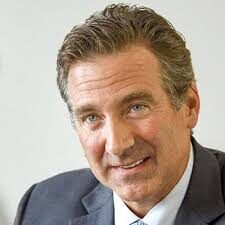 Close your eyes and conjure up in your mind a central casting CEO. What are they like?
Close your eyes and conjure up in your mind a central casting CEO. What are they like?
Charismatic? Charming? Engaging?
Quick witted? Extroverted? Innovative?
Creative?
For many people, including boards, these descriptors often make the list. And, in my 35-year career working with hundreds of CEOs and boards, I have met many leaders who would fit these criteria. Yet, I have found no correlation between these attributes and CEO or corporate success.
What then, instead? I offer the following based on my personal experience of both being a CEO and working with them. It is not statistically valid, and it is undoubtably incomplete. But here goes:
Integrity – It has always been true, but never more so than in today’s environment. Great CEOs have high integrity. Their word is their bond. They are trustworthy and dependable. They do what they say.
Intelligence – As we know, there are many definitions of intelligence. I have met great CEOs who are smart in the traditional definition, and also many who are street smart versus book smart. They can read people and situations; they “know” when something is wrong or doesn’t make sense.
Objectivity – It is rare that a CEO has a meeting with someone who isn’t trying to achieve something. Therefore, the ability to parse information to just the facts, while seeing all sides and being able to weigh the consequences is one of the most important attributes a CEO could possess.
“the best CEOs are ultimately accountable to themselves.”
Consistency – A great CEO knows that better decisions are always made with the time to gather multiple inputs, synthesize, reflect, and process. And, once a direction is established, these decisions cannot be subject to rapid change. Obviously, this does not mean a CEO shouldn’t adjust to new information but having been involved in numerous crises over the years, my observation is that the ability to stay the course in a difficult situation (and in the face of dissenters) is an important CEO capability.
Persistence – While consistency enables an organization to understand what to do and how to do it, persistence is one of those attributes that says to an organization, “we simply will not fail.” It is the demonstrated ability to go around or simply run over obstacles. It is demonstrating sustained commitment and gaining the commitment of an organization by living what is being asked of them.
Communication – The ability to communicate clearly, directly, and genuinely in a timely manner to everyone (yes, everyone) in an organization is a critical CEO trait. Notice I am not saying to be incredibly motivating or moving (though these are nice-to-haves in the right moment). I am referring to the ability to ensure all employees understand the mission and direction of the organization, their role in it, and where the company is on the journey. I recall a situation at a company that was in deep trouble. I was brand new to the situation and attended a town hall meeting where the CEO delivered an incredibly motivating and passionate presentation. I was ready to go! On my way out of the meeting, I overheard one of the CEO’s direct reports whisper to another, “That’s wonderful, but you and I both know we can’t deliver that.” Great speech, but game over.
Self-awareness – We all have strengths and weaknesses. And industrial psychologists report it is normal and natural to recruit people who are like us. Left unchecked, this will yield management teams who are very strong in some areas and weak in others. To avoid this, a great CEO must be self-aware and able to objectively understand where they need help. Then, they must design an effective organization structure with the right people so that together, the composite team covers all required skills and capabilities.
Evaluating talent – There is simply no substitute for the best athlete in the right role. And for key positions, the CEO will have the last word. Some CEOs possess the knack for this, but many don’t. The best use experienced resources and proven approaches to supplement intuition.
Team building – Great CEOs build strong teams. They demonstrate team-building behavior personally, and encourage the right actions in others, quickly and unequivocally correcting bad behavior and ensuring the design of the compensation system facilitates it.
Self-accountability – Ever heard the cliché, “It’s lonely at the top?” In my experience, that’s not true. It’s busy, hectic, and can be a place of mixed signals. Therefore, my observation is that the best CEOs are ultimately accountable to themselves. They have high standards, strong values, ethics, and morals, and hold themselves to the highest standards. They listen carefully, take in advice, and remain open to new ideas, but ultimately hold their own compass and follow it closely.

Chief Executive Group exists to improve the performance of U.S. CEOs, senior executives and public-company directors, helping you grow your companies, build your communities and strengthen society. Learn more at chiefexecutivegroup.com.
0

1:00 - 5:00 pm
Over 70% of Executives Surveyed Agree: Many Strategic Planning Efforts Lack Systematic Approach Tips for Enhancing Your Strategic Planning Process
Executives expressed frustration with their current strategic planning process. Issues include:
Steve Rutan and Denise Harrison have put together an afternoon workshop that will provide the tools you need to address these concerns. They have worked with hundreds of executives to develop a systematic approach that will enable your team to make better decisions during strategic planning. Steve and Denise will walk you through exercises for prioritizing your lists and steps that will reset and reinvigorate your process. This will be a hands-on workshop that will enable you to think about your business as you use the tools that are being presented. If you are ready for a Strategic Planning tune-up, select this workshop in your registration form. The additional fee of $695 will be added to your total.

2:00 - 5:00 pm
Female leaders face the same issues all leaders do, but they often face additional challenges too. In this peer session, we will facilitate a discussion of best practices and how to overcome common barriers to help women leaders be more effective within and outside their organizations.
Limited space available.

10:30 - 5:00 pm
General’s Retreat at Hermitage Golf Course
Sponsored by UBS
General’s Retreat, built in 1986 with architect Gary Roger Baird, has been voted the “Best Golf Course in Nashville” and is a “must play” when visiting the Nashville, Tennessee area. With the beautiful setting along the Cumberland River, golfers of all capabilities will thoroughly enjoy the golf, scenery and hospitality.
The golf outing fee includes transportation to and from the hotel, greens/cart fees, use of practice facilities, and boxed lunch. The bus will leave the hotel at 10:30 am for a noon shotgun start and return to the hotel after the cocktail reception following the completion of the round.